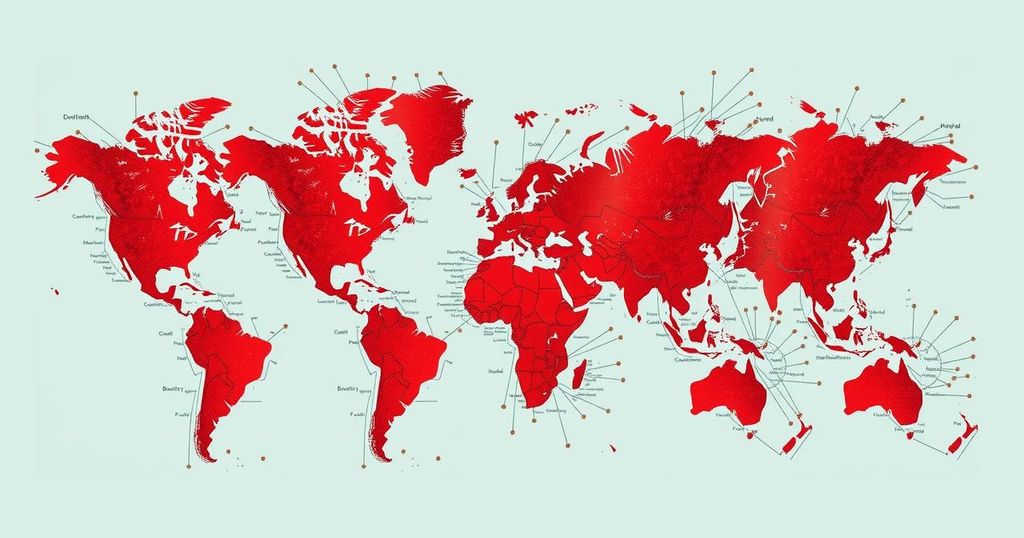The year 2024 featured unprecedented global electoral participation, with approximately 3.7 billion eligible voters across over 70 nations. While many elections proceeded without major incidents of misinformation, notable examples surfaced, including the cancellation of Romania’s presidential election and instances of foreign interference in U.S. and Moldovan elections. The overall impact of generative AI and misinformation on electoral integrity has emerged as a critical concern for democracies worldwide.
The year 2024 marked a significant moment for global democracies, as roughly 3.7 billion individuals across over 70 countries participated in elections, often described as a landmark ‘super year’ for voting. High-stakes elections unfolded in populous nations such as the United States, India, and Indonesia, as well as in authoritarian states like Belarus, Iran, and Russia. Notably, 182 million people cast their ballots in the European elections across 27 nations, showcasing one of the largest cross-border democratic exercises in history.
Despite heightened precautions against information manipulation, the influence of misinformation, generative AI, and foreign interference on electoral processes became increasingly evident. Meta Platforms, which oversees social media services like Facebook and WhatsApp, downplayed the risks of generative AI, stating that its potential impact on elections was limited. Conversely, comprehensive analysis from the Centre for Emerging Technology and Security suggested that while elections in regions like Europe and the United Kingdom were not significantly impacted by foreign-backed disinformation, the narrative was contradicted when evidence emerged of manipulation in Romania’s presidential election.
Throughout 2024, several key incidents highlighted the disruptive potential of misinformation in elections worldwide. In February, imprisoned former Pakistani Prime Minister Imran Khan used AI-generated voice technology to deliver speeches while incarcerated, asserting his electoral victory in a controversial manner. The European Parliament elections in June faced a surge in disinformation, with pro-Kremlin hackers launching attacks on Dutch political websites; yet, the elections proceeded without major disruptions.
In Moldova, a narrow referendum concerning EU membership sparked contention, with allegations of foreign interference and substantial Russian financial influence on voters. Meanwhile, the U.S. presidential election experienced disruptions as bomb threats were reported across swing states, with indications linking these threats to Russian origins.
Most strikingly, the Romanian presidential election concluded with the annulment of results after intelligence revealed that a state actor had orchestrated a disinformation campaign supporting ultranationalist candidate Calin Georgescu, leading to the reinstatement of integrity concerns around social media platforms used during the election. This series of events in 2024 emphasizes the growing complexity of election integrity amidst a landscape increasingly influenced by misinformation and foreign meddling.
The year 2024 witnessed unprecedented global electoral engagement, characterized by a significant number of elections in multiple democratic and authoritarian contexts. As traditional safeguards against misinformation and interference continued to evolve, the prevalence of digital misinformation fueled concerns regarding the integrity of electoral processes. The role of technologies, specifically generative AI, became a focal point in discussions about election integrity, spotlighting the dual-edged nature of advancements in technology and their potential misuse in political contexts. This backdrop serves to better understand the dynamics at play in the elections of 2024, wherein misinformation played a consequential role in shaping outcomes and perceptions.
In conclusion, the events of 2024 have underscored the profound effects of misinformation and foreign interference on electoral integrity across various regions. While certain analyses claimed limited impact from disinformation, significant incidents, particularly in Romania and the U.S., illustrated vulnerabilities in democratic processes. As governments prepare for future elections, the need to address the challenges posed by generative AI and foreign manipulation remains imperative to safeguarding democratic institutions.
Original Source: www.euronews.com






